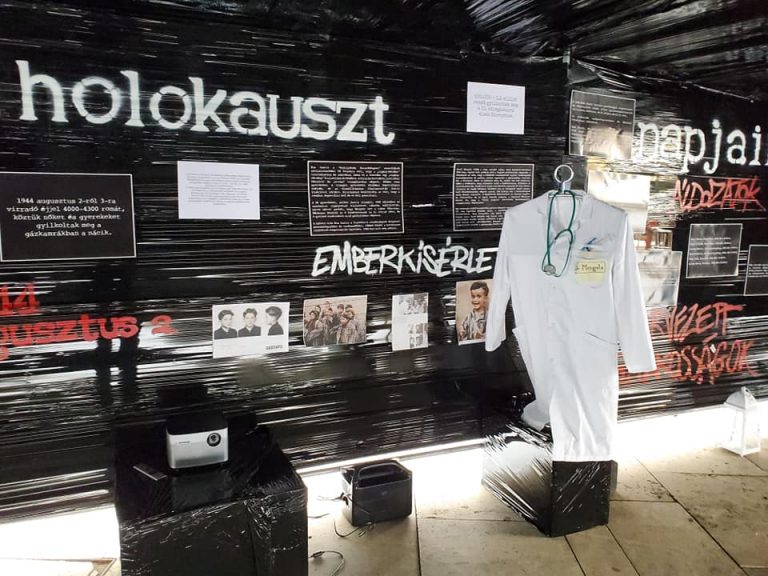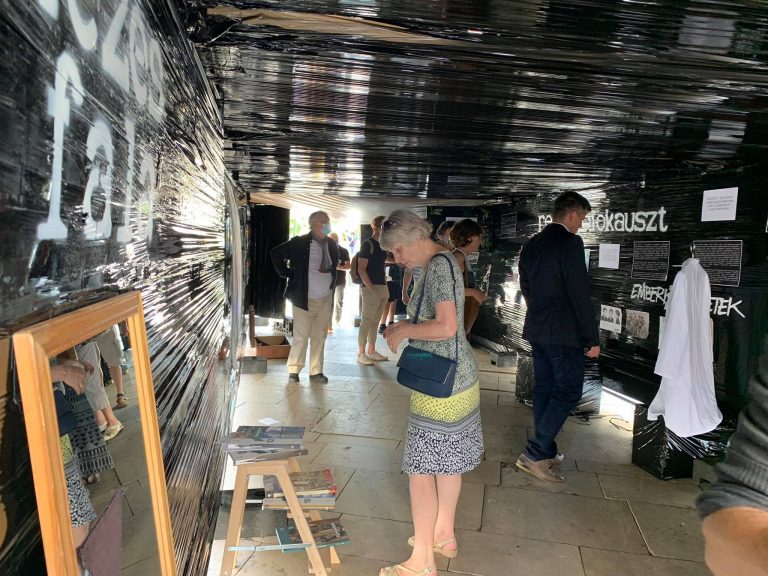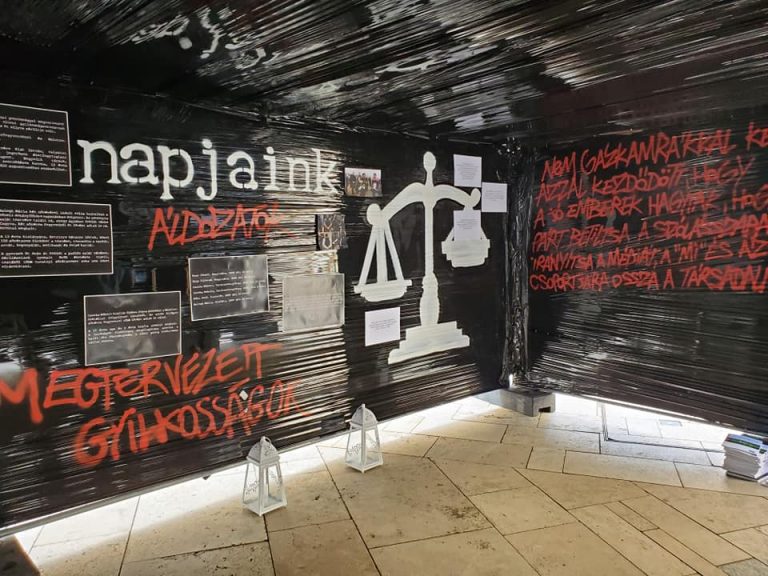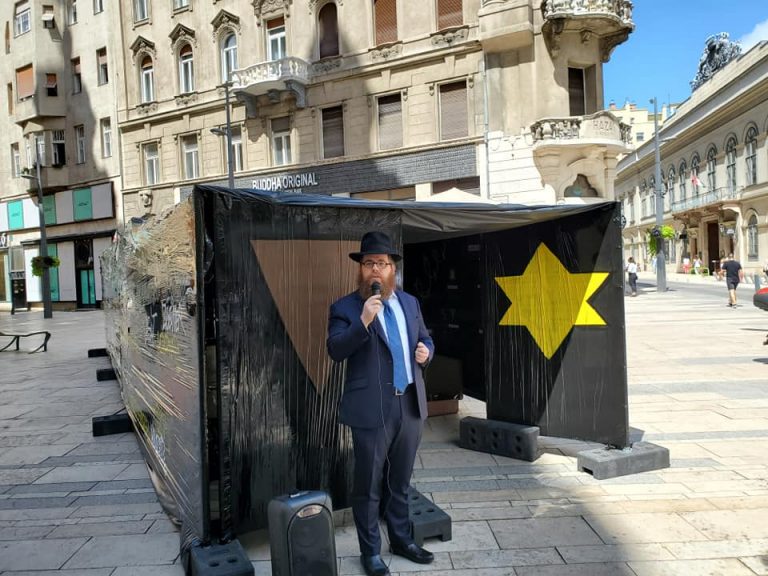The Phiren Amenca International Network, RomNet, the Uccu Roma Informal Education Foundation and the Civil Council Association commemorated the victims of the Roma Holocaust with an unusual, interactive exhibition on August 2, 2021. in Budapest, Hungary.
The exhibition was entitled “Words which Lead to Actions” besides facts about the Roma Holocaust, showed the centuries old oppression of Roma that still persists today in Hungary but also in the whole Europe and created space for self-reflections. The content of the museum was developed by the initiative of the previously mentioned organizations.

The purpose of the exhibition was to demonstrate that words are born from thoughts and deeds are born from words that once led to the Porajmos. The words led to the murder of more than 4,300 Roma, including women and children, in Auschwitz-Birkenau on 2 August 1944 in a single night.

The museum was built in front of the Eötvös Lóránd University and reached a big public interest. The museum was built by our initiative at the square where mostly non-Roma people are living because we wanted to show them and reflect them about the hundreds of year of oppression of Roma in Hungary: from the 1700s onwards, including the series of racist attacks against Roma in Hungary between 2008-2009.

As the opening of the museum, the initiative organized a press conference. In her opening remarks, Phiren Amenca’s international director, Marietta Herfort, recalled that “it all started with words. Laws were born into words and then, freely interpreted, into deeds. Deeds that brought the darkest era in European history.” She drew attention to the fact that the provisions implementing exclusion were not adopted on the streets, but in the building of the Hungarian Parliament, and although almost 100 years have passed, “oppressive rhetoric and politics are still present in our society today”.
At the opening of the exhibition, Slomo Köves, the leading rabbi of the United Hungarian Jewish Community (EMIH), recalled the memory of Rabbi Halberstam of Cluj-Napoca, whose wife and ten children were sent to death and survived. Immediately after the war, he began to build community, first in Cluj-Napoca and then in Israel, believing that the Jewish people had won by surviving the Holocaust.
Miklós Beer, the retired bishop of the diocese of Vác, said August 2 is a shocking day of remembrance, and from a distance the message still appears today. It is important to reflect on how people thinking about who has the right to life and who does not. Everyone is born into the world as a child of God, the bishop emphasized.
The museum had a big public interest, we estimate that between 9am and 8pm on August 2 we had around 200 visitors .

The project is funded by the EVZ Foundation and the Federal Foreign Office as part of the program YOUNG PEOPLE remember.



